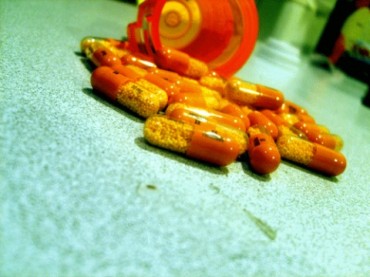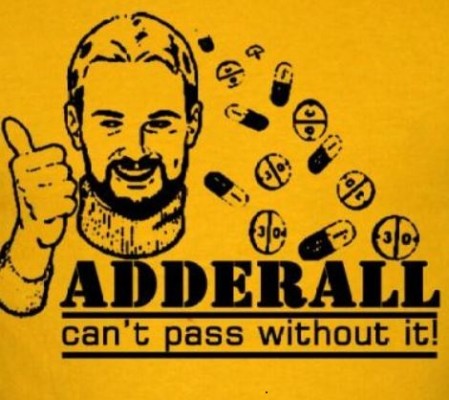
Many have heard the tragic story of the young Richard Fee, a smart, popular and athletic college grad who became addicted to the prescription drug Adderall and hung himself at age 24.
Fee’s story was told by The New York Times in February and the Christian Broadcasting Network just a few weeks ago, as the former popular college class president and aspiring medical student has become the poster child for how an Adderall addiction can go horribly wrong.
It’s 2013, and despite warnings plastered on the Internet for years, despite heightened publicity about the ramifications about the drug’s abuse, despite the high-profile politician Sen. Chuck Schumer this summer calling for an Adderall crackdown on colleges, students still pop the pills. A lot.
Common estimates put the frequency at which colleges students take the pep-pill at roughly one out of five. Adderall remains popular among college students who seek a boost of energy to cram before an exam, as it’s an amphetamine-based prescription medication used to treat Attention Deficit Hyperactivity Disorder.
“Adderall has become to college what steroids are to baseball: an illicit performance enhancer for a fiercely competitive environment,” wrote columnist Roger Cohen in a New York Times op-ed in March. “While it has helped countless A.D.H.D. sufferers, it can also lead down a dark road of dependency, ever higher doses, fight-or-flight anxiety levels, sleeplessness and depression.”
But students know all too well that Adderall allows them to get done in a few hours what would usually take them half the day. Some students study sober, or use coffee, but many turn to drugs.
On the quad, it’s called “academic doping.”
In a six-month study recently published in the Journal of Medical Internet Research, Brigham Young University health and computer science researchers reported tweets about Adderall peak sharply during final exam periods and the middle of the week, and decline by the weekend. 
“Both findings are consistent with previous research that shows college students who abuse ADHD stimulants do so primarily during times of academic stress,” researchers found.
“Adderall is the most commonly abused prescription stimulant among college students,” lead researcher Carl Hanson, a professor of health science at BYU, stated in a news release. “Our concern is that the more it becomes a social norm in online conversation, the higher risk there is of more people abusing it.”
Many students have said they like Adderall because it’s sort of like an acceptable and clean form of the street drug crystal meth. They don’t feel bad taking it. Some also refer to it as “Ivy League speed.” And the abuse shows no signs of abating.
“The demand for Adderall amongst college students has become a business during finals week, as every other student is searching adamantly for someone who deals the study aid,” Washington D.C.-based student Katherine Costello reported for PolicyMic in April.
Health clinic psychiatrist Dr. Gary Christensen with the University of Minnesota told CBN last year that the increased demand for Adderall even led to a state-wide shortage of the drug, and said “clinicians need to be more discriminating.”
The side effects of Adderall include risk of a stroke or heart attack, high blood pressure, increased anxiety, depression, mood swings, and suicidal tendencies. Some colleges may expel students found in possession of Adderall if they don’t have a prescription. Students who do have a prescription and are caught selling their pills can be charged with a felony.
In June, USA Today reported on some ideas proffered by Sean Esteban McCabe, associate professor at the University of Michigan, who said “colleges and universities should develop ‘effective policies and programs to discourage the non-medical use of prescription stimulants.’”
The newspaper reported that, similar to Sen. Schumer’s proposals, McCabe’s ideas include “encouraging universities to assess their own schools to find out whether the non-medical use and diversion of prescription stimulants represents a problem on their campuses” and “practicing appropriate diagnosis, treatment and therapeutic monitoring of college students who are receiving prescription psychostimulants.”
“The non-medical use of prescription stimulants among college students has flown under the radar for too long at many colleges and universities, so the recent comments by Sen. Schumer to reduce the non-medical use of prescription stimulants are long overdue,” McCabe said.
Fix contributor Samantha Watkins is a student at Point Loma Nazarene University.
Click here to Like The College Fix on Facebook. / TWITTER: @CollegeFix
IMAGES: Main – Sugar/flickr; Inside – Cainad/Flickr




Please join the conversation about our stories on Facebook, Twitter, Instagram, Reddit, MeWe, Rumble, Gab, Minds and Gettr.